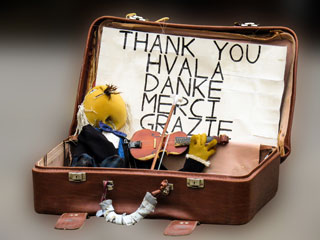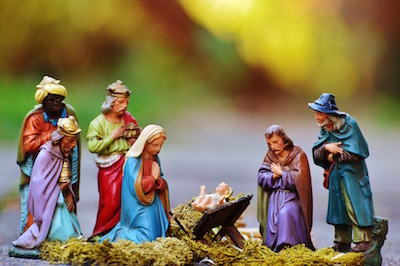 Most Americans are generous. We support our churches and step up to the plate during times of natural disasters. We give to United Way at work, donate goods and cash to the Salvation Army, and many respond to televised pleas for support especially when it involved children or pets. Americans have big hearts, and giving makes us feel good. It also allows for a break on our tax return!
Most Americans are generous. We support our churches and step up to the plate during times of natural disasters. We give to United Way at work, donate goods and cash to the Salvation Army, and many respond to televised pleas for support especially when it involved children or pets. Americans have big hearts, and giving makes us feel good. It also allows for a break on our tax return!
But do you give strategically? Have you taken the time to think through how you can best help the causes you care most about? Giving strategically means “giving with goals in mind”—a way to support a charity, or several charities, that you love.
A Donor-Advised Fund (DAF) is a charitable account that acts as a charitable savings account. You make an initial deposit that is immediately tax-deductible, then use it to make grants out to qualified 501(c)(3) charities when you wish. The magic of grants is that you can specify how you want your money to be used by the charity.
You may be able to give more than you think! You can fund your DAF account with cash; that’s better than having it taxed. Yet you can increase your giving by putting to work your non-cash assets like stocks, real estate, IRAs, whole life insurance policies, art collections, and other tangible personal property. You keep your assets in the family, and allow their value to help others during your lifetime!
There are legitimate reasons to keep your giving private. We find that some business owners with staunch moral convictions prefer to keep information about which charities they support private. Unlike giving from a private foundation, a DAF allows them to increase their giving capacity at a fraction of the cost, without all the legal, tax and regulatory burdens, and never having detailed tax records made public.
If a strategic giving plan sounds interesting and solves some organizational, administrative, or privacy issues for you, call me today at (614) 800-7985 or reply to this email. And please, share this blog from Stewardship Foundation with someone you know. Together, we can make the world a better place.
 Luke is the only evangelist that presents the story of Jesus’ birth. The Greek word he uses for the setting of Jesus’ birth is kataluma. In Luke 2:7 “kataluma” is translated as “inn” but the same word is used in Luke 22:11 for what seems to be a guest room. So it could have been that a hospitable innkeeper invited them to stay in his own house for several days or weeks and never mentioned his stable. I’d really like to believe it happened this way. But does “how” matter?
Luke is the only evangelist that presents the story of Jesus’ birth. The Greek word he uses for the setting of Jesus’ birth is kataluma. In Luke 2:7 “kataluma” is translated as “inn” but the same word is used in Luke 22:11 for what seems to be a guest room. So it could have been that a hospitable innkeeper invited them to stay in his own house for several days or weeks and never mentioned his stable. I’d really like to believe it happened this way. But does “how” matter?  For example, take a hopelessly down-on-his-luck drug-dependent homeless man on the street who walks into a doctor’s office to demand assisted suicide. He has no future, no hope, and no means to overcome his dependence on a drug that will eventually kill him anyway. He complains that he is suffering, probably more so than anyone dying from cancer or another fatal disease. His lifestyle is his fatal disease. He demands to be put out of his misery and appears to be mentally competent in his demand.
For example, take a hopelessly down-on-his-luck drug-dependent homeless man on the street who walks into a doctor’s office to demand assisted suicide. He has no future, no hope, and no means to overcome his dependence on a drug that will eventually kill him anyway. He complains that he is suffering, probably more so than anyone dying from cancer or another fatal disease. His lifestyle is his fatal disease. He demands to be put out of his misery and appears to be mentally competent in his demand.